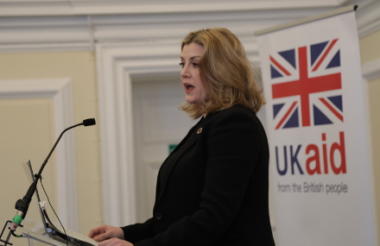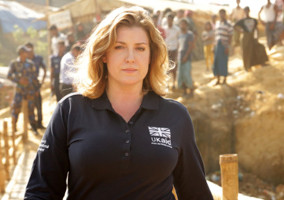Major UK charities, the Charity Commission and the Department for International Development have agreed to set up an independent body to ensure the highest possible standards across the aid sector.
At the Safeguarding Summit yesterday, it was agreed that an independent body would be created to promote external scrutiny. The summit agreed to explore an international safeguarding centre to support organisations to “implement best practice on safeguarding and maximise transparency in the sector”.
DfID announced yesterday that this could include conducting safeguarding reviews, offering guidance and support to organisations, and a “deployable team of experts on sexual exploitation and abuse who can advise organisations on the ground”.
Yesterday’s summit was put on jointly by DfID and the Charity Commission, and attended by representatives from aid charities, in response to concerns over safeguarding within the aid sector which has emerged since reports on safeguarding issues at Oxfam came out a few weeks ago.
The creation of the independent body was one of several actions on a shortlist of immediate short terms measures, and longer term initiatives, to be developed in the coming weeks and months.
DfID's statement gave no indication of any exact timescales for the initiatives it outlined yesterday.
New standards for vetting
Also to be introduced are new standards for vetting and referencing across the sector.
DfID said that all organisations agreed the importance of an urgent review of referencing in the sector. The summit agreed that vetting and referencing standards are required for: UK-based staff; international staff; and locally-employed staff, to ensure that “no offender can fall through the cracks”.
The summit also agreed to ensure that whistle-blowers and survivors of exploitation and abuse get the counselling and support they need. A plan for a systematic audit of whistleblowing practices across the sector was agreed on, to ensure individuals feel able to report offences.
DfID, the Commission, and the charities in attendance also identified the importance of developing and implementing mandatory standards which would make organisations accountable to beneficiaries. It said that this would ensure that those receiving aid are able to identify and raise concerns.
‘Hold people to account’
The summit agreed on the need to change organisational culture to tackle power imbalances, encourage reporting, take allegations seriously and hold people to account.
It was agreed that annual reports would be made more transparent, with specific information published on safeguarding including the number of cases. They said that mandatory inductions on safeguarding for all staff should be introduced to ensure any issues are “identified and acted upon”.
Also agreed on at the summit was the need to ensure concerns are heard and acted upon. The summit agreed the “vital role of establishing clear guidelines for referring incidents, allegations and offenders to relevant authorities - including the National Crime Agency”.
DfID said that as well as the action points agreed at the summit, it would also continue to ensure small charities are supported during this process.
Bond: 'An important message to the very people this sector serves'
After the summit, Bond, the umbrella body for aid charities, said the summit sent an import message to beneficiaries.
Tamsyn Barton chief executive of Bond said: “Today’s summit sends an important message to the very people this sector serves, our staff and our supporters - we will not allow any behaviour by individuals within our own sector that harms the people we were set up to help. Bond’s members have provided the number of incidents, as well as additional details on reporting and allegations to DFID. Many agencies have been able to report the number of incidents which have occurred because they do have policies and procedures in place. The issue here is about making sure the sector is able to prevent exploitation from happening in the first place and ensuring perpetrators are held to account.”
|
Related articles












